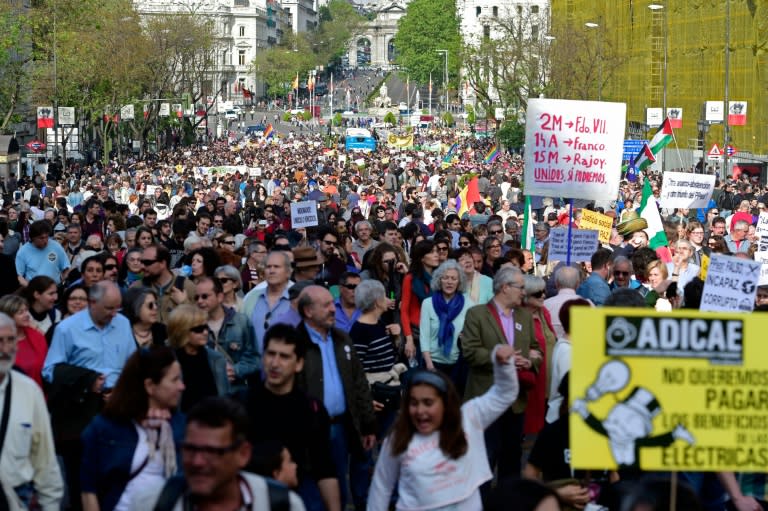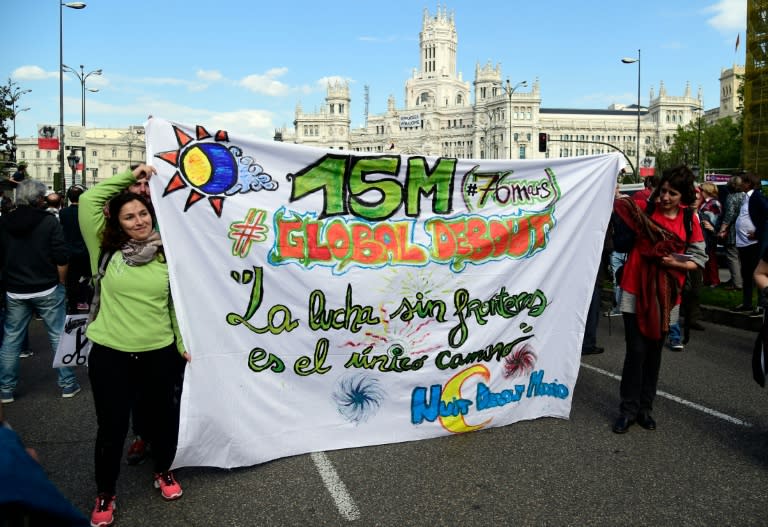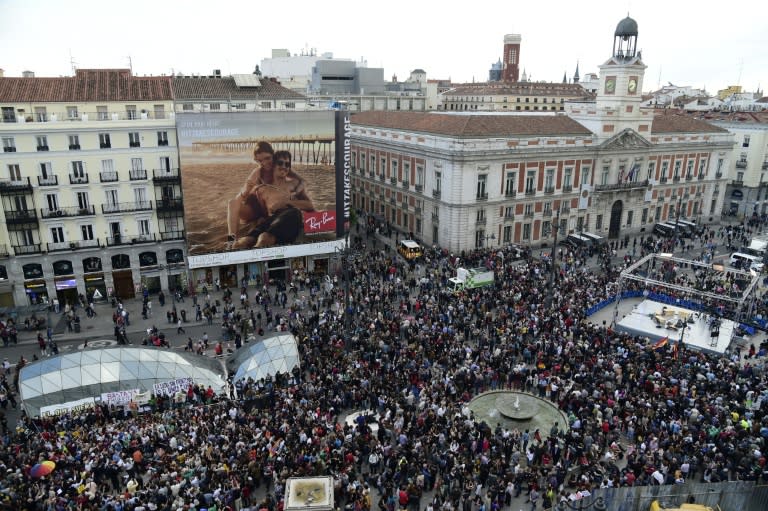Spaniards march on anniversary of Indignados movement
Thousands took to Madrid's streets to mark the fifth anniversary of the birth of Spain's Indignados movement, which shook the country's political system and sparked "occupy" movements around the world. Crowds marched through the Spanish capital to the beat of drums, holding banners proclaiming: "Indignados, united or defeated!", "Unemployed on the march!" and "European Union of people, not nations!". Thousands also gathered in the city's central Puerta del Sol square throughout the day and into the evening, commemorating the weeks protesters spent occupying it in the spring of 2011. "We are here to mark 15-M (May 15). I really lived it, I practically lived in Sol," 55-year-old Asun Lasaosa told AFP. "But this time, it's more of a party." That year, 21,000 protests took place throughout Spain as people expressed their anger at the economic crisis, government austerity and corruption. The movement quickly spread beyond Spain, inspiring Occupy Wall Street protests in New York as well as gatherings in other European cities. It also gave birth to Podemos in January 2014, a far-left, anti-austerity party that reshaped Spain's traditional political system by sweeping to third place in last year's polls. "Five years ago, we came here and it was a very moving moment of awakening, of unity, of togetherness," said Paola Weil, a 35-year-old teacher. The Indignados movement gave people at the bottom of society a chance to speak out, said Lorenzo Higueras, a 52-year-old documentary maker. Before May 15, "we were not aware of who we were: people who can think and act", he said. More than two million Spaniards lost their jobs in the economic crisis, while the government brought in spending cuts in a bid to shrink the country's huge debt burden. While the measures steered Spain away from economic collapse, austerity increased inequality and a string of corruption scandals deepened resentment of the elite. That anger gave rise to Indignados, a movement of people from across the political spectrum who were "indignant" about the country's political, economic and social woes. The movement filtered into city halls in major cities like Madrid and Barcelona, with activists now holding prominent positions after municipal elections in May last year. It also reshaped parliament with the swift rise of Podemos and another new centrist grouping, Ciudadanos in December elections: out of 350 lawmakers, 211 had never held a seat before. But the change has left Spain in political limbo after coalition talks to form a government collapsed, meaning voters will have to go back to the polls in June.




